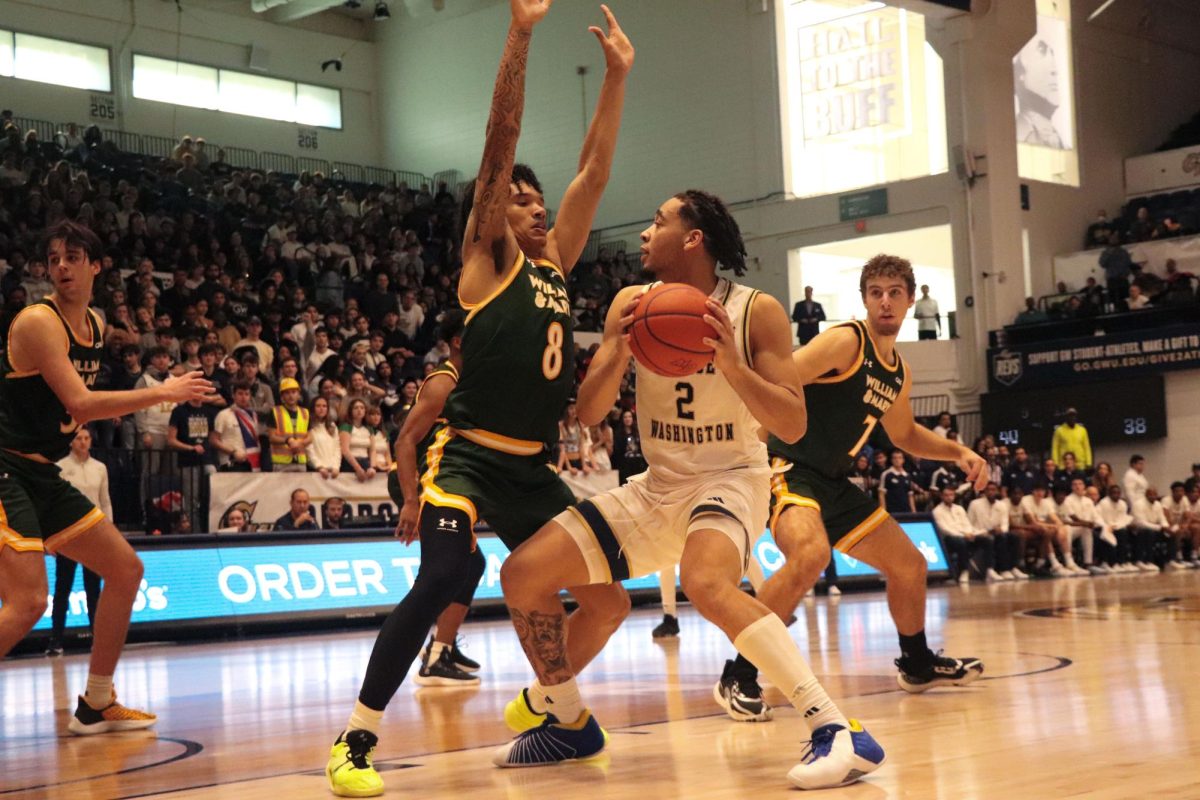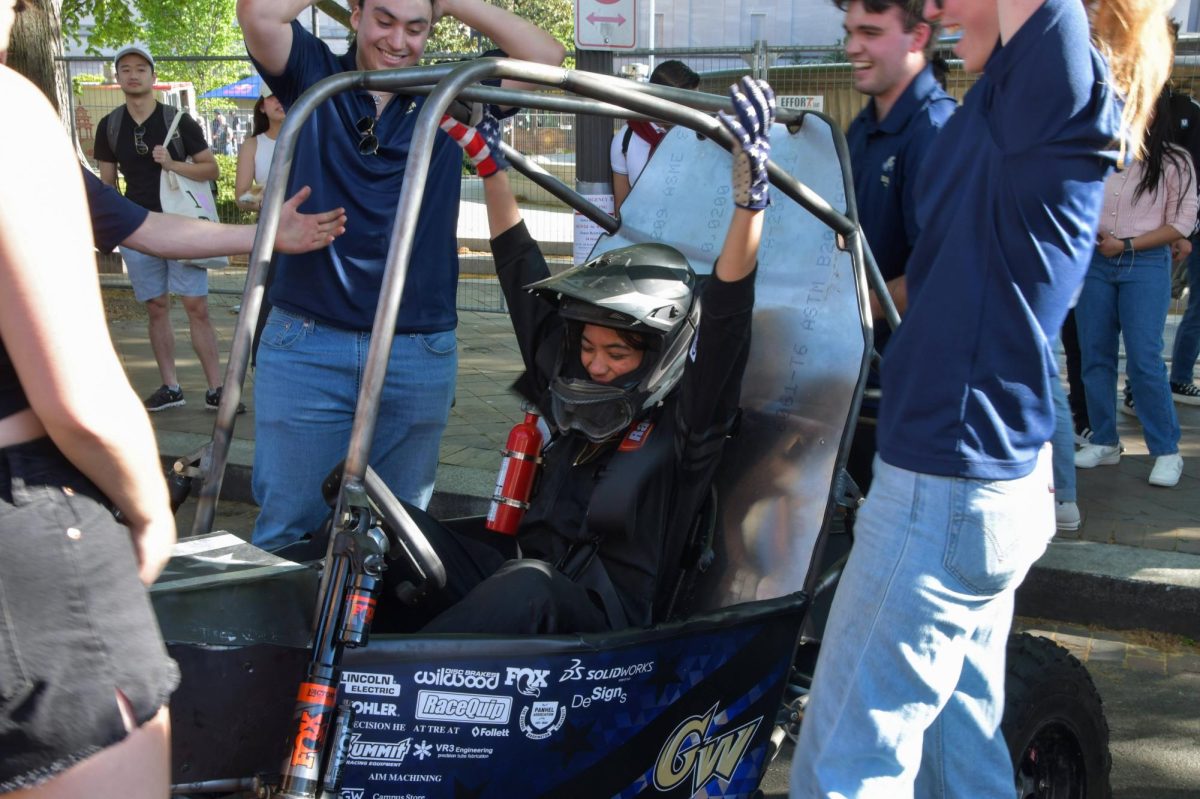When the St. Louis Rams tied the New England Patriots late in the Super Bowl two years ago, the game appeared to be headed into overtime for the first time in NFL history. One GW senior wearing a “No Overtime” T-shirt kicked his television in disgust. But it wasn’t because he was a Patriots fan.
This 2003 graduate, who spoke to The Hatchet on the condition of anonymity, bet between one and five thousand dollars through an online sports book that the game would not go to overtime, friends said.
His fraternity brothers at the Delta Tau Delta house joked about being on suicide watch when the game was tied, but fortunately for their friend, the Patriots’ Adam Vinatieri kicked the game-winning field goal as time expired in regulation. And the student who made the bet quickly went from a state of agony to one of jubilation.
“Let’s just say I had a hell of a spring break trip to Europe,” he said. “And now Vinatieri is always my first pick in fantasy football.”
The bet may sound outrageous, but the growing prevalence of sports gambling Web sites are making it easy for any student with a credit card and a computer to bet on his or her favorite sporting event, one of the most popular being this weekend’s Super Bowl.
On most Web sites, all a person has to do is fill out a form with basic biographical information to open an account, and payment can be made with a credit card or through online banking services such as NetTeller.
Although Nevada and Atlantic City, N.J., are the only legal places to bet in the United States, the sites get around the law by housing their operations in other countries. For example, the Web site Sportsbook.com is owned by Sportingbet, a British company that is publicly traded on the London Stock Exchange.
Senior Gabe Goodwin said that in the past he has used a Web site called BoDog.com to place bets. He said the site is reliable; its “about” page says that it is licensed by the Costa Rican government.
“I’m not betting on the Super Bowl this year,” Goodwin said. “But I used to occasionally bet on sports to make it interesting.”
For Super Bowl Sunday, sports book Web sites are advertising bets ranging from simple point spreads to wacky combinations. For example, on Sportsbook.com, a person can bet on which will be larger, the number of free throws Philadelphia 76er Allen Iverson makes in a basketball game or the number of points the Carolina Panthers score during the first half of the Super Bowl.
Goodwin also said that, like other college campuses, there are bookies at GW. He does not bet any more, but if he did, he said he would never go through a bookie.
“First of all, I don’t bet enough money to go through a bookie,” he said. “Second of all, it’s illegal. I don’t want my thumbs broken.”
For some, gambling on sports becomes more serious than it was for Goodwin. Bonnie Smith-May, a counselor at the Center for Compulsive Gambling in Baltimore, said that although the average age of a compulsive sports gambler is in the early 30s, she occasionally treats college students.
“Problem gamblers tend to be very good with numbers,” she said. “The college-age ones will be math, economic and business majors. They’re usually very competitive and into sports. They tend to get bored easily and usually come from families with an emphasis on money. Maybe a father was a workaholic or never had enough money.”
Smith-May said the Super Bowl and the NCAA men’s basketball tournament in March are two of the busiest times of year for the treatment center, which is one of only three in the nation that specializes in one-on-one care.
“The trigger usually gets really big with football,” Smith-May said. “After the Super Bowl, sometimes people are broke and that’s when they usually come in for treatment.”
For most students, however, friendly wagers are more common than compulsive gambling or online betting. Freshman Zach Lerner said betting is just a way to make “big games” like the Super Bowl or baseball playoffs more interesting to him and his friends, and that there is never more than 10 or 20 dollars involved.
“It gives me a reason to root for one team over the other, even if I don’t have much interest in the game, or even the sport, for that matter,” Lerner said. “I am a big Yankees fan, but I’ll still bet on them in big games just to add to the hype.”







